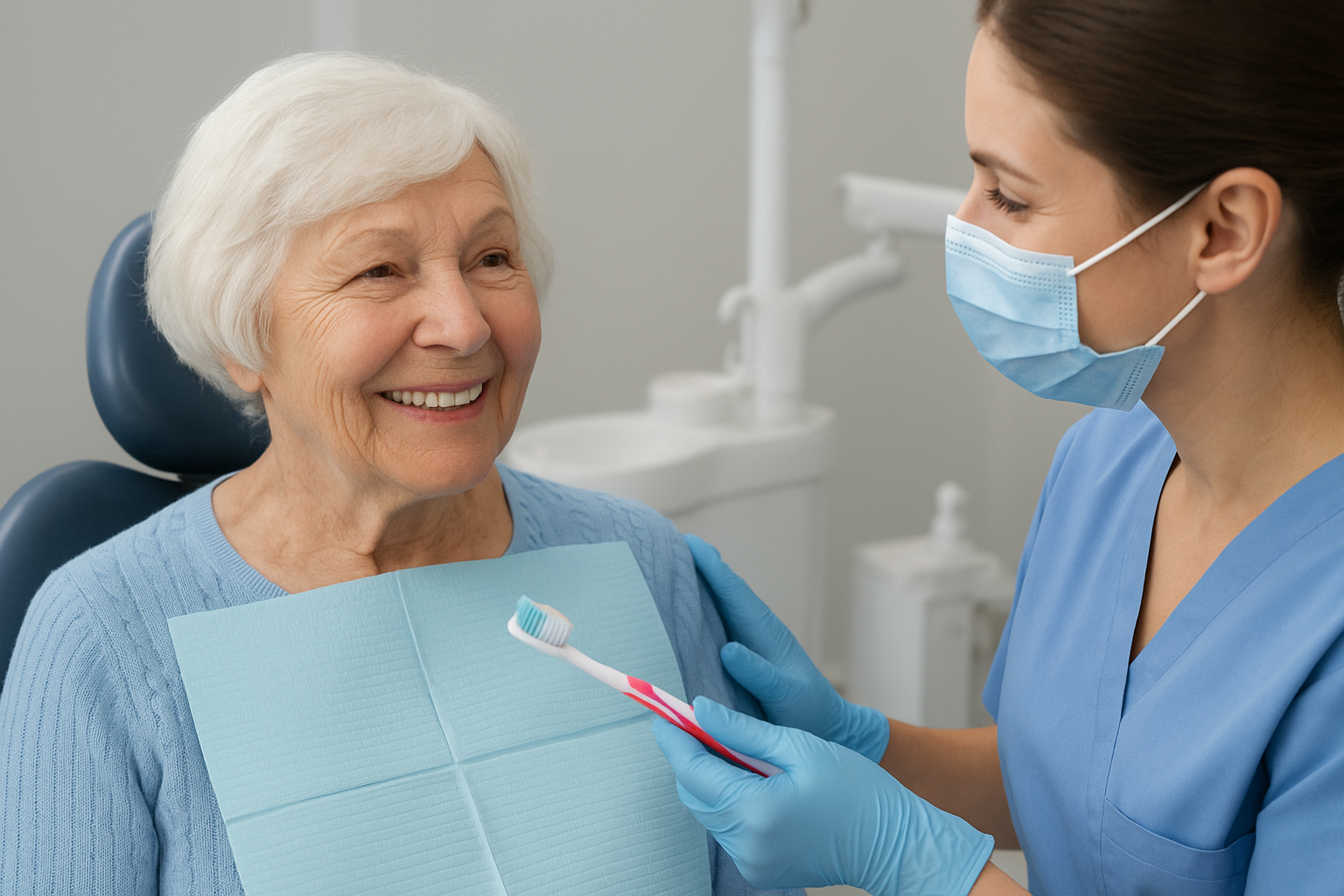We often think of aging as just silver hair and wisdom, but did you know your teeth and gums age too? Maintaining good oral health isn’t just about keeping a nice smile, it’s about staying healthy overall. Poor dental health has been linked to heart disease, diabetes, and even memory decline.
As we grow older, our teeth naturally wear down, gums recede, and medications can cause dry mouth. That’s why prioritizing dental care in senior years isn’t optional, it’s essential for a better quality of life.
Common Dental Challenges for Seniors
Aging brings its own set of dental struggles:
- Gum disease and tooth loss: Gum infections often creep up silently and can lead to loose or missing teeth.
- Dry mouth (xerostomia): Many medications reduce salivary production, making the mouth dry and increasing the risk of cavities.
- Tooth sensitivity: Worn enamel makes eating ice cream or sipping hot coffee a little too exciting.
- Ill-fitting dentures: When dentures don’t fit right, chewing becomes uncomfortable and speech can be tricky.
Sound familiar? The good news is that with the right care, these issues can be managed effectively.
Essential Dental Care Tips for Seniors
1. Maintain Regular Dental Checkups
Think of your dentist as your smile’s best friend. Professional cleanings remove plaque that brushing can’t, and regular checkups catch problems early before they become painful or costly.
2. Brush and Floss Daily
Yes, you’ve heard it all your life but it matters more now than ever. Use a soft-bristled brush and fluoride toothpaste to protect sensitive gums. If flossing feels like a battle, try a water flosser or tiny interdental brushes.
3. Stay Hydrated
Water is your mouth’s best defense against dryness. Sip throughout the day and chew sugar-free gum to stimulate saliva. Your dentist may also suggest mouth rinses designed for dry mouth relief.
4. Use the Right Dental Products
Not all products are created equal. Choose toothpaste with fluoride, a soft toothbrush for gentle cleaning, and mouthwash for sensitivity. If you’re unsure, ask your dentist for personalized recommendations.
5. Care for Dentures and Implants
Treat dentures like natural teeth clean them daily, soak them overnight, and schedule adjustments if they feel loose. For implants, follow a strict cleaning routine to avoid gum problems.
6. Balanced Diet for Strong Teeth
What you eat affects your teeth. Crunchy veggies, leafy greens, and dairy products strengthen enamel. On the flip side, sugary snacks and acidic drinks fast-track decay so keep them in check.
7. Monitor Medications
Blood pressure pills, antidepressants, and other common medications can affect your oral health. Don’t ignore side effects like dryness or sensitivity. Talk to your dentist and physician about possible adjustments.
Preventing Serious Issues
Oral health problems aren’t just about cavities. Seniors should also watch for:
- Oral cancer signs: Persistent sores, lumps, or patches that don’t heal.
- Impact of chronic conditions: Diabetes and heart disease worsen with poor oral health.
- Dental pain: Never “wait it out.” Pain is a signal something’s wrong get it checked quickly.
Tips for Caregivers
If you’re helping a senior loved one, your role is vital. Encourage daily brushing, flossing, and denture care. If you notice bleeding gums, difficulty chewing, or frequent mouth pain, it’s time to book a dental visit.
Conclusion
Aging gracefully isn’t just about staying active it’s also about keeping your smile healthy and strong. With regular checkups, proper cleaning, the right products, and a balanced diet, seniors can enjoy better oral and overall health.
At the end of the day, dental care is about more than teeth; it’s about comfort, confidence, and living life to the fullest.
If you’re a senior (or caring for one), prioritize dental health. Your smile and your body will thank you.



